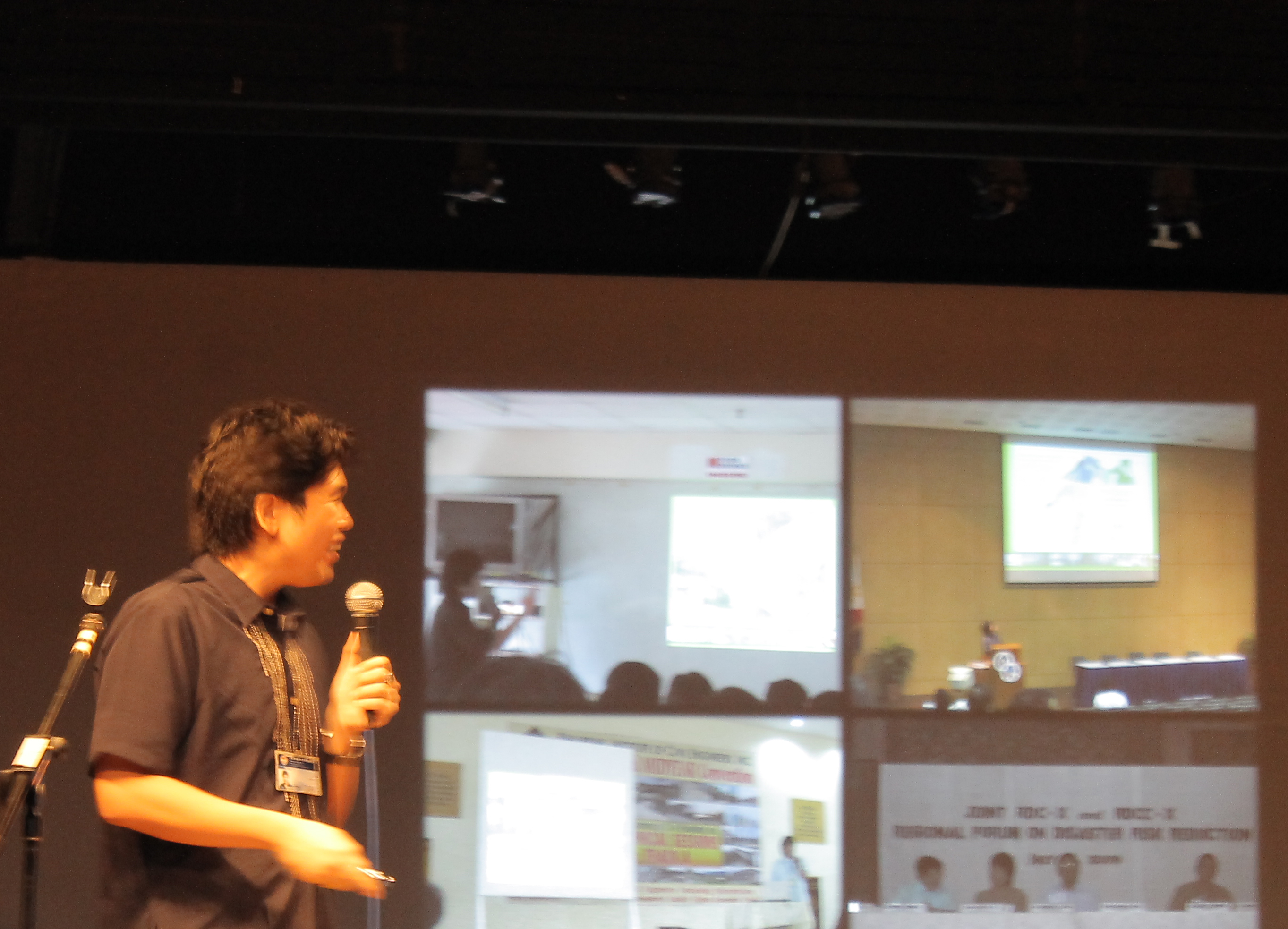
Engr Dexter Lo of XU's Engineering Resource Center shares about the Center's DRRM experience
The Philippine APEC Study Center Network (PASCN) presented some researches relating to the resilience of cities and MSMEs to natural disasters at a forum hosted by the Research and Social Outreach on June 21.
PASCN is a project of the Philippine Institute for Development Studies (PIDS) that promotes, coordinates and acts as the focal point of APEC-related researches in the country. Xavier University is a member of the network.
“Resilience has a direct bearing on inclusive growth,” said Dr Joel Yap, PIDS president. He noted that despite our high GDP growth, poverty incidence in the Philippines remains high.
“One reason is our limited capability to recover from natural disasters,” Yap said.
Inclusive growth, and climate change and disaster risk management are among the five priority areas for the APEC meeting in 2015, along with regional economic integration, food security, and infrastructure development and connectivity.
One of the aims of the forum was to highlight the capacities and initiatives of local governments and the economic sector in reducing risks and recovering from natural disasters.
The papers presented included the use of Community-Based Monitoring System (CBMS) for generating disaster vulnerability maps by PIDS research fellow Dr Celia Reyes. The study focused on the importance of CBMS data in assisting local governments and communities prepare for extreme weather events.
“With CBMS data, you can have a more systematic way of distributing aid during relief operations,” she said. Although she stressed that the need for intervention extends beyond relief operations to helping households recover more quickly.
In the same vein, Engr Dexter Lo, director of XU’s Engineering Resource Center, shared about the DRRM experience of XU, particularly during Typhoon Sendong. Lo underscored the importance of developing solutions with the community and undertaking DRRM practices with a view toward sustainable development.
Drawing from his experience with DRRM, Lo said that it is just as important to proceed with gratitude and love.
“The more serious disaster is when the human spirit is broken,” he said. The Engineering Resource Center is presently assisting 36 barangays develop risk maps.
To show that an effective DRRM strategy can be implemented by local governments, Dr Gilberto Llanto, also a senior research fellow at PIDS, imparted on Albay’s DRRM strategy.
Albay established the Albay Public Safety and Emergency Management Office in 1995 to prepare and respond to disasters. The province has successfully carried out a community-based DRRM approach, wherein communities are involved in planning, making early warning systems and disseminating advisories.
The other research presentations were on the Cebu experience on the use woodfuels and its links to climate change by Dr Elizabeth Remedio of the University of San Carlos, and Crisis Resilience of Micro, Small and Medium Enterprises (MSMEs) to Economic and Climate Shocks, which is still in the proposal stage, presented by Ms Ailyn Lau of the Asian Institute of Management Policy Center.
Dr Shiela Siar, PIDS director for Research Information, also presented on the Socio-Economic Research Portal for the Philippines (SERP-P), which contains more than 5,000 publications from 51 member-institutions, including Xavier University through the Research Institute for Mindanao Culture. The portal can be accessed through serp-p.pids.gov.ph/institution.php.